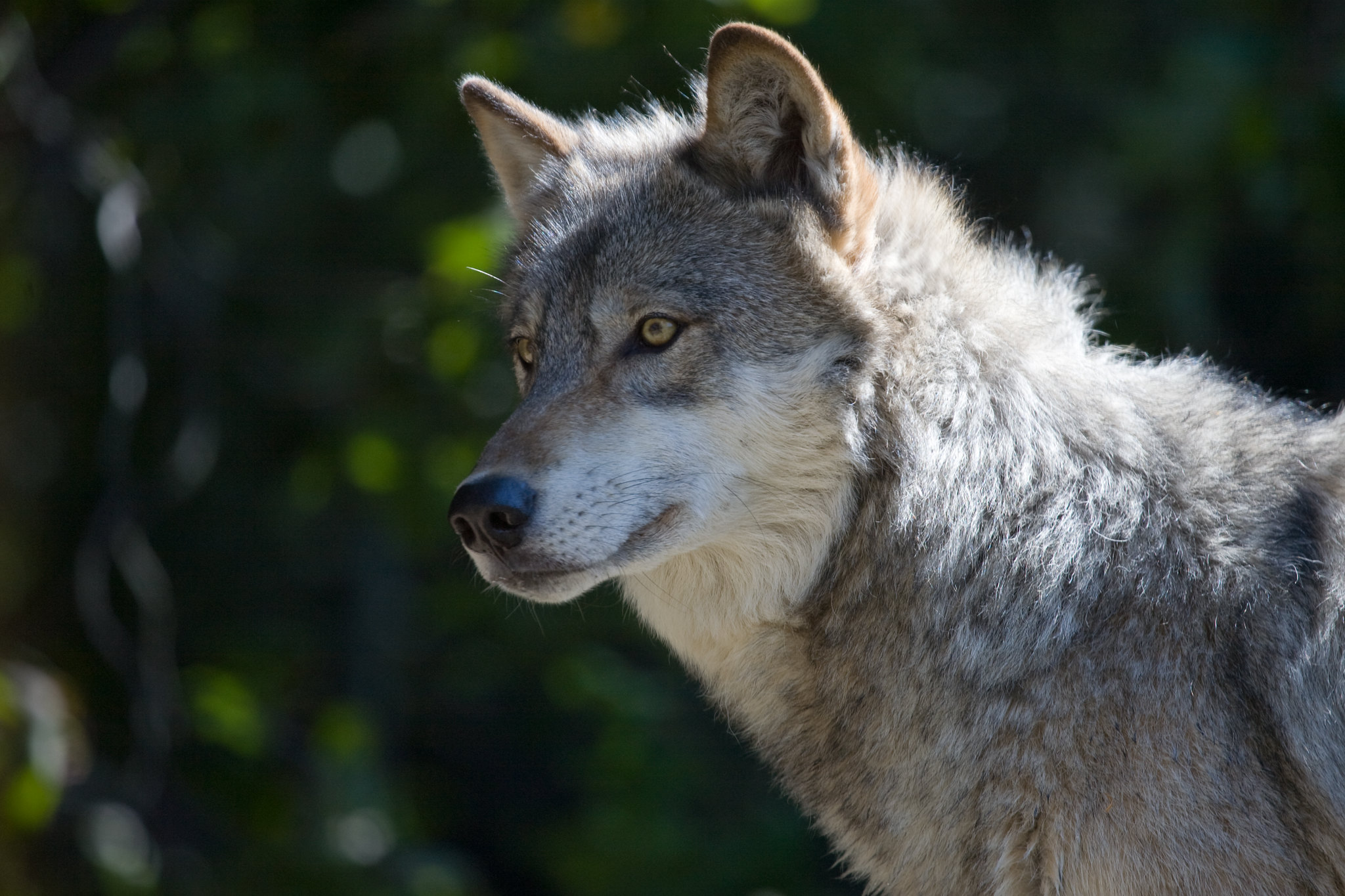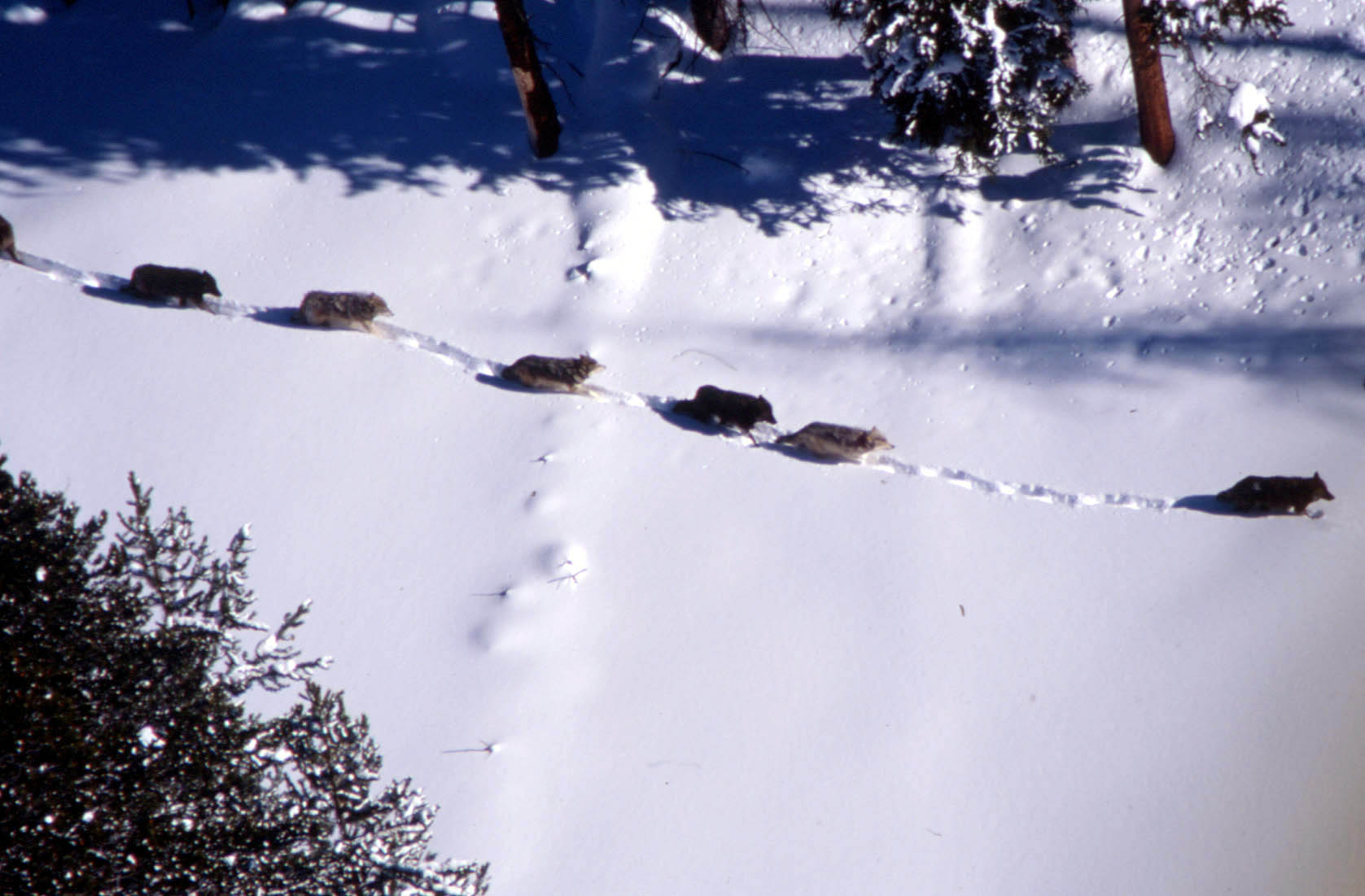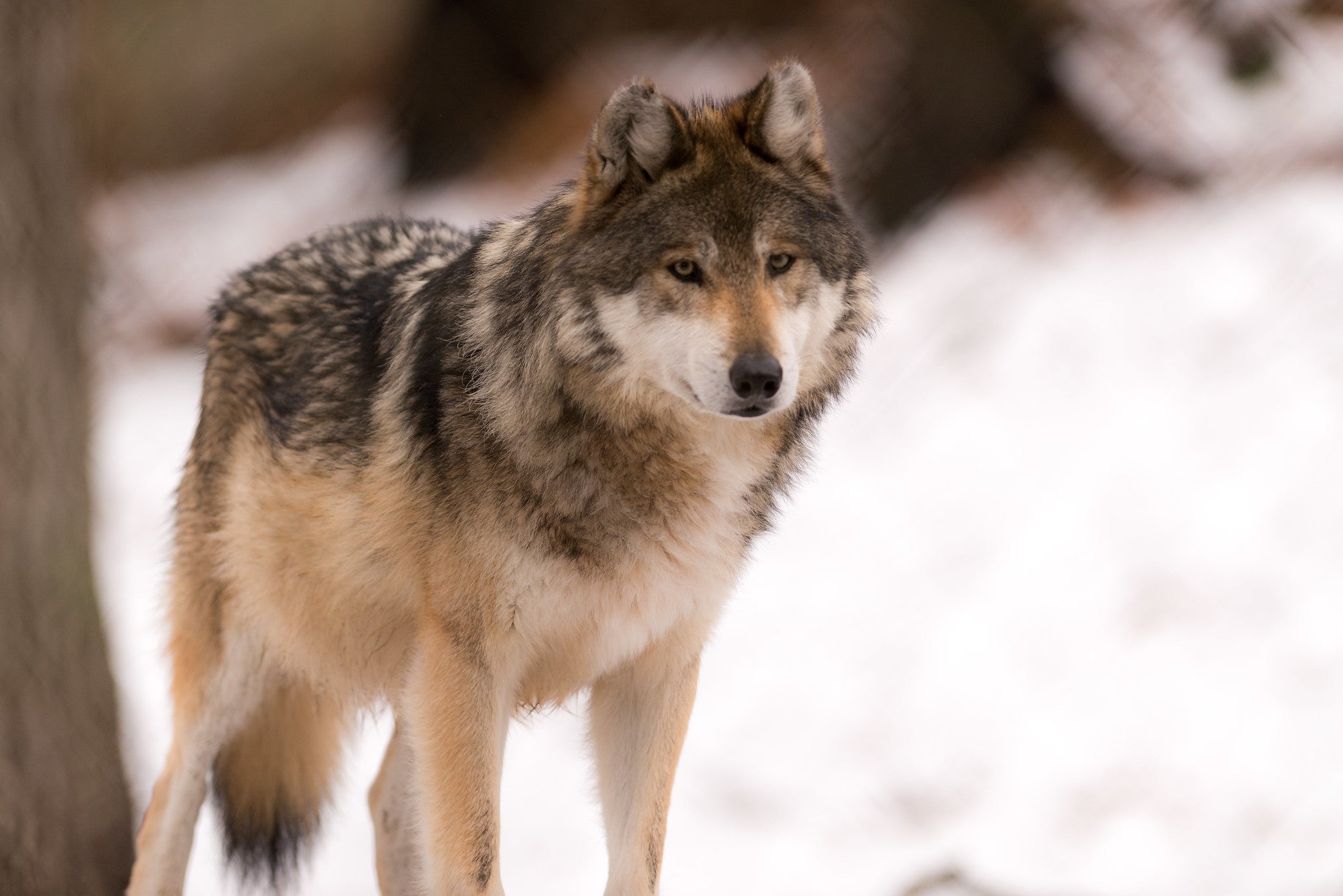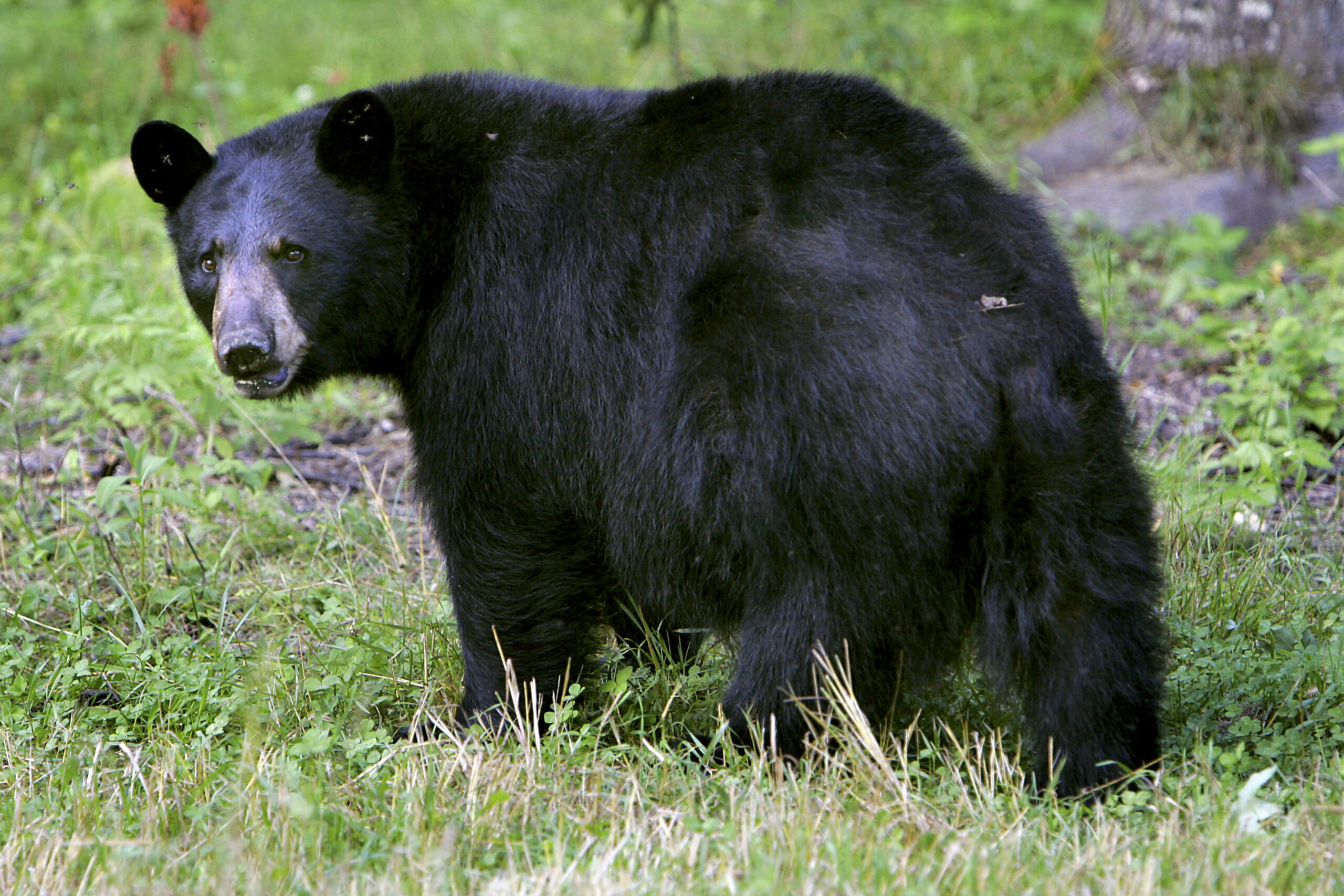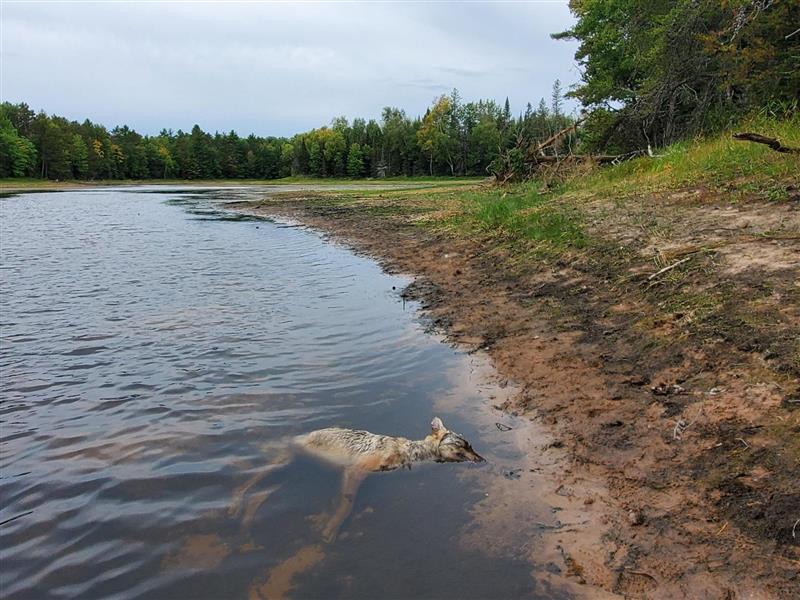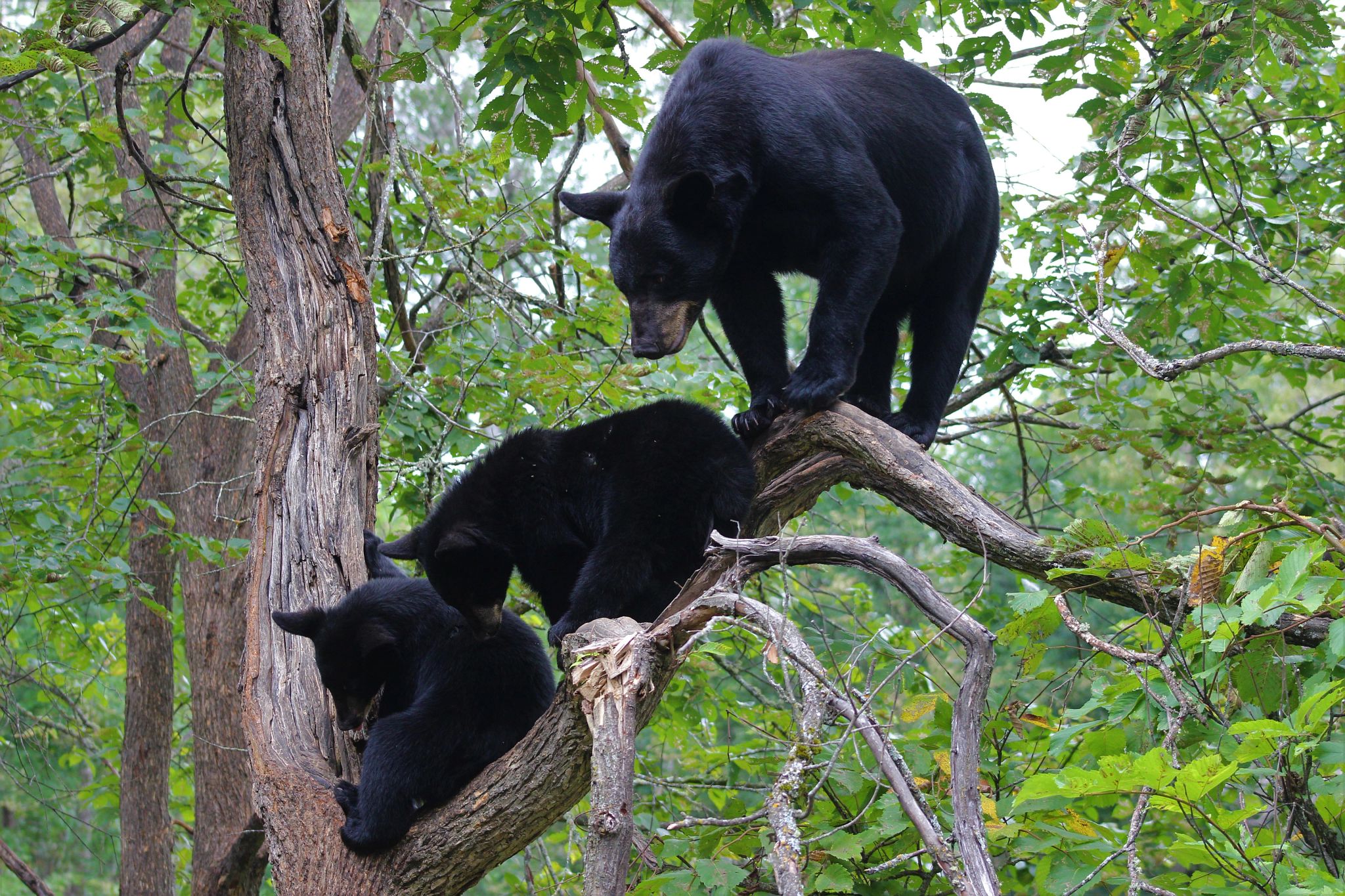Wisconsin tribes are claiming 50 percent of the harvest quota for the upcoming fall wolf hunt, and they want to drive the share for state-licensed hunters lower after the February wolf hunt.
Wisconsin’s Ojibwe tribes are entitled to up to half the quota as part of a federal court ruling that affirmed tribal treaty rights. Tribes don’t plan to harvest the animal, according to John Johnson Sr., chair of the Voigt Intertribal Task Force with the Great Lakes Indian Fish and Wildlife Commission. The commission represents 11 tribes across Wisconsin, Minnesota and Michigan.
“That’s our right to not take them if we don’t want to (hunt them),” said Johnson.
Stay informed on the latest news
Sign up for WPR’s email newsletter.
Tribes also want to see the Wisconsin Department of Natural Resources and its policy-setting board reduce the share allotted to state-licensed hunters by as many as 99 wolves — the number of wolves by which hunters exceeded their quota in February. The agency must submit any plans to readjust the quota based on the results of the February hunt to the Natural Resources Board for approval.
The board voted 5 to 2 in August to set a quota of 300 wolves for the fall hunt — more than double the quota recommended by the DNR. DNR staff urged a conservative harvest due to uncertainty over the population’s response to the February wolf hunt. Hunters blew past their 119-wolf quota and killed 218 wolves in less than 72 hours.
A Wisconsin DNR spokesperson said the agency is continuing its planning for the fall wolf hunt and declined to comment on the tribal declaration. Figures provided by the DNR show the agency has received 27,288 applications for the upcoming hunt, surpassing the record 27,151 people who applied for a preference point or license in the February hunt.
Johnson, who is also president of the Lac du Flambeau Band of Lake Superior Chippewa, fears state-licensed hunters will harvest too many wolves in the hunt set to begin on Nov. 6. He argued wolves are crucial for controlling chronic wasting disease in deer across the landscape and also reduce deer-auto collisions as much as 24 percent.
He accused the Natural Resources Board of “playing childish games” with wolf management.
“This is the future of this animal, this being, and they just got to stop (doing) what they’re doing and listen to their biologists, listen to our biologists, and put everything behind us,” said Johnson. “It’s just a power struggle.”
At the board’s Aug. 11 meeting, DNR Secretary Preston Cole accused board members of trying to manipulate the quota and set it higher, knowing tribes can declare up to half the amount. The board’s vice chair Greg Kazmierski fired back that the agency’s quota recommendation was manipulated when it came before the board.
Johnson said Wisconsin tribes may pursue litigation soon to ensure their federal treaty rights are being upheld.
“We have to do something because this is getting out of hand,” said Johnson. “It’s getting out of control.”
Wisconsin tribes are among dozens of tribal nations who are demanding the Biden administration provide emergency protections for wolves. They argue that states have enacted anti-wolf policies that threaten to decimate wolf populations in a letter to Interior Secretary Deb Haaland last week.
In recent weeks, animal protection and wildlife advocacy groups have also sued to halt the fall wolf hunt, saying the law that mandates a hunt is unconstitutional. The lawsuit also targets Natural Resources Board Fred Prehn and accuses him of leading an unfair process for setting the harvest quota and “squatting” in his seat.
On Friday, a Dane County judge dismissed a separate lawsuit brought by Attorney General Josh Kaul against Prehn that sought to remove the embattled chair. Kaul has vowed to appeal the ruling.
Prehn has refused calls for him to step down from the board after his six-year term expired on May 1. The appointee of former Republican Gov. Scott Walker has argued a Wisconsin Supreme Court ruling allows him to remain in his seat until the Republican-controlled Senate confirms the appointment of Sandy Naas, who was named to the board by Democratic Gov. Tony Evers.
Some Evers’ appointees have served for years and still have yet to be confirmed by the Senate.
Wisconsin Public Radio, © Copyright 2025, Board of Regents of the University of Wisconsin System and Wisconsin Educational Communications Board.
